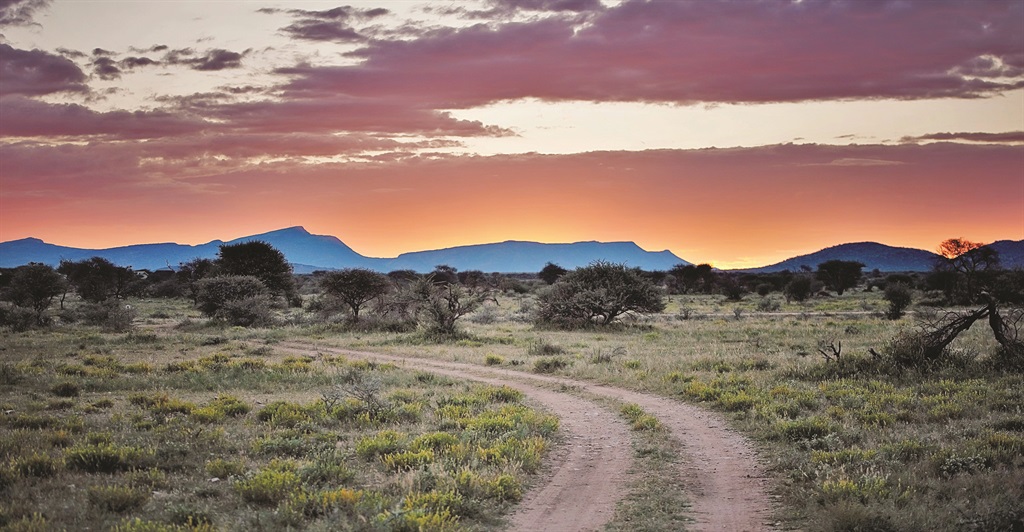
The Constitutional Review Committee recently adopted a report in favour of land expropriation without compensation.
Depending on which side of the fence you are camping, either the stage has been set to make South Africa great again or our descent into the abyss has begun.
The eternal optimist in me goes for the former option.
I borrow from US President Donald Trump’s mantra, “Make America great again”, as I seek to draw parallels between South Africa and the US, taking into account the latter’s economic prowess and standard of living relative to its regional peers.
This is neither an attempt to glorify the bigotry, reductionism and backwardness that have defined Trump’s presidency since he assumed power in 2016, nor a yearning for the dark days of apartheid.
It is merely an attempt to tell a story of a South Africa that was once able to feed its people, at the very least.
In my books, that’s a great nation.
While South Africa prides itself on being a net exporter of food – a far cry from its African peers – the reality is that more than half of the population (close to 30 million people, according to Stats SA) cannot feed themselves properly because they are either unemployed or earn barely enough to buy basic foodstuffs.
Growing up in my maternal grandmother’s homestead in the former Transkei Bantustan, I tasted first-hand what it means to work the land and live off it.
My grandparents were no different from their neighbours in the village of Cabazana, a 20-minute drive from the nearest town of Kokstad, where households were allocated land for growing food and cattle grazing.
We were neither rich nor poor; there was always food in the house – fresh, organic food from my grandmother’s garden.
On our five hectares we grew mealies, pumpkin and sugar beans at the back of the homestead, and all sorts of vegetables (onions, green peppers, carrots, cabbages) at the bottom half of the plot.
The middle part of the land was reserved for the homestead as well as a kraal for my grandfather’s herd of cattle, a sheep’s shed and a small stable for his two horses.
In spite of this, my grandfather had to work in a cheese-making farm in Mount Ayliff, coming home only once a week – leaving my grandmother and older cousin to run the household, look after the cattle, feed the chickens, and so on.
His weekly wages and my mother’s monthly remittance – she worked as a nurse in Durban – supplemented our livelihood in the household.
But it was only enough to buy commodities such as tea, coffee, sugar and foodstuff we couldn’t grow from the ground. And to pay for my school fees.
In hindsight, I have imagined this: What if my grandfather had a bigger tract of land like his white counterparts in the small towns of Kokstad and Mount Ayliff?
What if he did not only breed Nguni cattle, but also the Jersey and Friesland cows for milk production and the meaty Bonsmaras and Brahmans to sell to the local abattoir?
What if the tract of land was big enough to grow maize to sell commercially to the local maize industry, or even export his maize to foreign markets?
These questions race through my mind whenever I drive past my grandfather’s now derelict homestead.
Even the communal maize fields across the river from the homestead now lie fallow, with hundreds if not thousands of villagers currently plying their trade in the platinum belt of the North West, and others trying their luck in Johannesburg, the City of Gold.
It was such a thrill to gallop on horseback across the expansive, green and lush landscapes, valleys and hills of Cabazane village.
When I share these stories with my kids, it sounds like one of the fairy tales from their story books.
Surely, if our land had been big enough to produce enough for our sustenance and sell the surplus, my grandfather would have never had to work for white farmers.
I probably would never have left village life for better opportunities in the city. If I did, it would have been by choice, like many white children who grow up on their fathers’ farms.
Had a critical mass of South Africans been afforded access to fertile land to produce their own food and food for commercial purposes, South Africa would be a different country today.
A great country even.
So, as a nation, we absolutely have no choice but to address the land question once and for all.
As I have attempted to illustrate above, this is beyond the sloganeering and political machinations by the Economic Freedom Fighters and the ANC – this is about addressing as basic a need as ensuring that people can feed themselves without relying on government hand-outs.
Secondly, access to land is about spreading the agriculture cake for increased participation by the landless majority.
In doing so, you create new value chains, new businesses, new secondary agri-related industries and new livelihoods for the rural masses, and you tame the migration to the cities in search of better opportunities.
So, the decision of the parliamentary committee in favour of expropriation of land without compensation is a first step towards making South Africa great again.
Buthelezi is public affairs adviser in the private sector. He is currently rebuilding his grandfather’s farm and plans to be a farmer when he retires from corporate life




 Publications
Publications
 Partners
Partners








